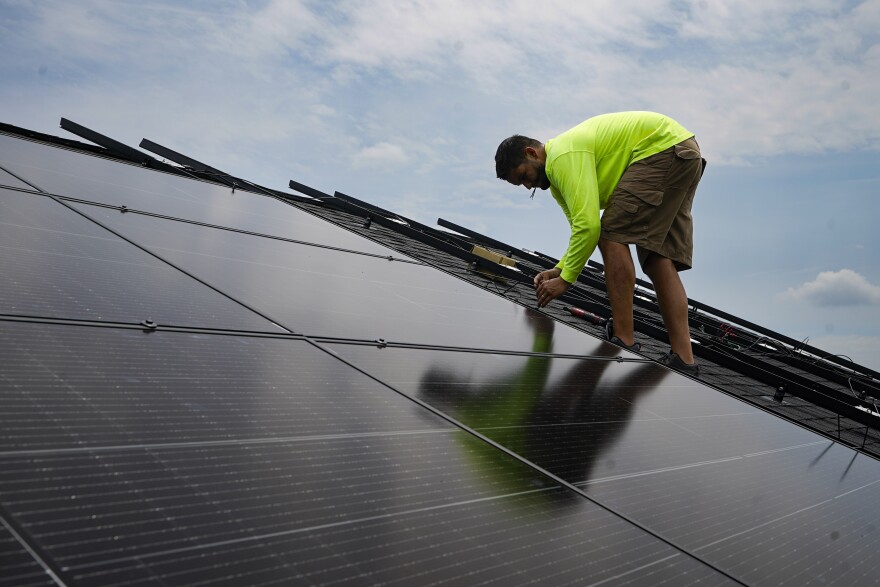As power bills rise, the politics of energy are taking center stage in the race for governor.
During a debate earlier this month, candidates for governor clashed on environmental issues. At one point, Republican candidate for Governor Winsome Earle-Sears said this…
"My opponent's only plan is solar and wind. Well, what happens when the sun goes down?"
Well, what does happen when the sun goes down?
"What happens when the sun goes down is solar power is still available through storage," says Blair St. Ledger-Olson at the Virginia League of Conservation Voters. She says solar power can be stored in batteries.
"Battery storage is being used across the country, not just in power generation but to run escalators in the Mall of America, to be backup power for hospitals, to be backup power for emergency centers in places that have frequent extreme weather events."
Earlier this year, Governor Glenn Youngkin vetoed a bill that would have created targets for long-duration energy storage, including solar power when the sun goes down. In his veto message, Youngkin said the Clean Economy Act is failing, and he doesn't want to add new requirements to a law he describes as "misguided."
This report, provided by Virginia Public Radio, was made possible with support from the Virginia Education Association.


